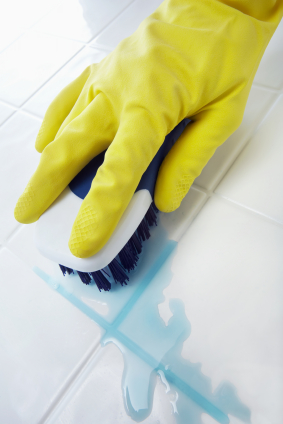“The duty to preserve relevant evidence is fundamental to federal litigation.”
Janet Bond Arterton, United States District Judge.
 Innis Arden Golf Club v. Pitney Bowes, Inc., 2009 U.S. Dist. LEXIS 43588 (D. Conn. May 21, 2009) is a polychlorinated biphenyls (“PCBs”) clean up case brought under the Comprehensive Environmental Response, Compensation, and Liability Act (“CERCLA”) and Connecticut law.
Innis Arden Golf Club v. Pitney Bowes, Inc., 2009 U.S. Dist. LEXIS 43588 (D. Conn. May 21, 2009) is a polychlorinated biphenyls (“PCBs”) clean up case brought under the Comprehensive Environmental Response, Compensation, and Liability Act (“CERCLA”) and Connecticut law.
Unfortunately, the clean up efforts included getting ride of evidence that resulted in sanctions for the Plaintiff, Innis Arden Golf Club.
Pitney Bowes and Pateley Associates 1, LLC, the Defendants in the case, charged that Innis Arden failed to preserve soil samples and related electronically stored information. The Defendants requested either a dismissal or a proportional alternative sanction for the loss of evidence.
Things figuratively turned into a toxic mess for the Plaintiffs because their experts failed to have a document retention policy over soil samples from the subject property and related electronically stored information. Neither the Plaintiffs’ attorneys nor the experts activated a litigation hold on the evidence, which resulted in all the emails and draft reports being deleted after 30 days. Innis Arden Golf Club, 12-13.
The following deposition testimony, where the witness admits to litigation being anticipated and the lawyer volunteers they did not inform the Defendants the evidence was going to be destroyed, says it all.
Things You NEVER Want to hear in Deposition Testimony
Q. You knew this case was going to be in litigation, correct?
A. We anticipated that this possibly could go to litigation.
Q. Okay. Did anyone tell you to retain the samples as evidence for this Case?
A. No.
Q. Did you ask?
A. No. . . . But we discussed with counsel notification requirements of all those responsible parties in advance of the remediation to allow them the opportunity to participate or obtain whatever samples they were wanting.
Q. Well, I’m asking you about the evidence you gathered as evidence of alleged contamination. Did you retain that evidence?
A. No. Standard–standard protocol is to dispose of samples once analyzed. . . .
Q. Do you know when the samples in this case were destroyed?
A. No.
Q. Prior to destroying any or all of the samples, did you give notice or did counsel give notice to any of the defendants in this case?
Mr. Flynn: Objection
A. I don’t know.
Mr. Steinberg: Did you?
Mr. Flynn: Did I give notice?
Mr. Steinberg: You or your company.
Mr. Flynn: Notice of what?
Mr. Steinberg: That they were going to destroy the samples. I think it’s pretty obvious what the question is.
Mr. Flynn: Did we give notice? No. Innis Arden Golf Club, 10-12.
The Court cited that the duty to preserve arises when “the party has notice that the evidence is relevant to litigation or when a party should have known that the evidence may be relevant to future litigation.” Innis Arden Golf Club, 14, citing Kronisch v. United States, 150 F.3d 112, 126 (2d Cir. 1998). Courts must weigh if the destruction was the result of an intentional act and the likely the contents of the evidence to determine the appropriate sanction. Innis Arden Golf Club, 14.
The Court had to answer the following issues:
(1) Whether the Plaintiff was obligated to preserve the samples and associated data and failed to do so; and
(2) Whether the failure to preserve evidence warranted imposition of sanctions and to what severity. Innis Arden Golf Club,15.
Duty to Preserve the Soil Samples & ESI? You Bet There Was One.
Evidence must be preserved if a party reasonably anticipates litigation. Once this happens, a party “must suspend its routine document retention/destruction policy and put in place a ‘litigation hold’ to ensure the preservation of relevant documents.” Innis Arden Golf Club, 16, citing Zubulake v. UBS Warburg LLC, 220 F.R.D. 212, 218 (S.D.N.Y. 2003).
The Plaintiffs’ documents and their discussion of possible legal action showed the Plaintiff recognized the relevance of the soil samples for possible litigation. Innis Arden Golf Club, 18. As such, the duty to preserve began by mid-2005. Innis Arden Golf Club, 19.
Finding the Appropriate Sanctions for Destroying Evidence
 Courts evaluate the following in determining the appropriate sanction for spoliation:
Courts evaluate the following in determining the appropriate sanction for spoliation:
1) The degree of fault of the party who altered or destroyed the evidence;
2) The degree of prejudice suffered by the opposing party; and
3) Whether the appropriate sanction minimizes the prejudice to the opposing party and “serve to deter such conduct by others in the future.” Innis Arden Golf Club, 25 (citations omitted).
The Plaintiffs’ email correspondence with their attorney and expert illustrated they wanted to seek a cost-recovery action against the Defendants. The correspondence showed the Plaintiffs believed the soil samples were important evidence and that the Plaintiffs wanted to avoid being accused of destroying evidence. Innis Arden Golf Club, 25-26.
The Defendants were prejudiced because they could not review the evidence for dating analysis or type of toxic material. Innis Arden Golf Club, 26.
The Court found that only sanctioning with an adverse inference instruction was not sufficient for the spoliation the Plaintiffs caused, let alone a strange application in a bench trial. Innis Arden Golf Club, 28-29. As such, the Court held the appropriate sanction was the preclusion of evidence based on the soil samples the Plaintiffs took from the subject property and later destroyed. Innis Arden Golf Club, 30.
